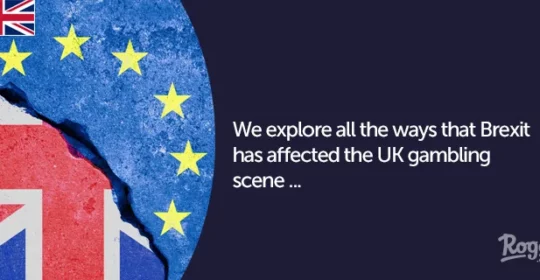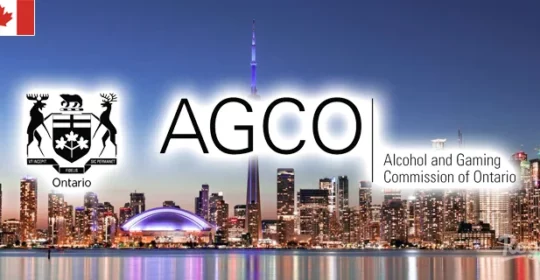Poland has some of the strictest gambling laws in Europe. Yet enforcement remains inconsistent, creating significant regulatory uncertainty.
Today, the Polish Gambling sector is at a crossroads.
Online gaming and sportsbook usage are on the rise in the country. Yet the government has an extremely restrictive approach, overseen by a state monopoly. This is creating a perfect storm for illegal gambling to proliferate, and the European Economic Congress has called for better regulation.
Let’s take a closer look at the situation and what the future might hold for Polish gamblers.
Table of contents
Poland's current gambling regulation
An amendment to Poland's Gambling Act was made in 2017. It's now estimated that this change diverted $57 billion to offshore casinos, resulting in a loss of $1.4 billion in taxable gambling revenue.
Gambling is a state monopoly in the country. This means that the service can only be provided by a single supplier, the government, and all other providers are outlawed.
In some instances and sectors, this may work.
But when it comes to gambling, it has provided a bedrock for illegal operators to flourish. There is also a huge lack of clarity for consumers about what platforms are safe, transparent and fair.
Legal vs illegal casinos in Poland
Total Casino is the only legal casino operating in Poland. However, a quick online search reveals numerous other platforms that Polish players can easily access.
As a result, many users are unaware whether they are gambling on a legal domestic site or an offshore operator.
? To put it in perspective, when translated to Euros, the Polish Gambling Industry is worth €14.6bn per year. However, €14bn of this comes from the illegal and unregulated gambling sector.
The Ministry of Finance has a list of 50,000 domains which host illegal games. However, they continue to operate without hindrance. This makes this harder to enforce because many of them are extremely good. They offer fair games, great customer service and a wide selection of titles.
What does this mean? Well, illegal operators sometimes offer a better experience than the state-approved casino.
Learning lessons from other countries
Poland can learn a lot from the United Kingdom, where healthy competition and clear legislation have led to a vibrant ecosystem of online casinos.
These include big brands associated with the larger Vegas Casinos and newer providers like Kinghills Casino. With a wide choice of games and introductory bonuses, platforms like this often provide over 6,000 games with 24/7 support.
Even the creator of the solitary legal casino, Olgierd Cieślik, believes that change is needed.
He served as the chair of Totalizator Sportowy from 2017 to 2024. He argues that the legal gambling market is growing far too slowly, especially when compared to other digital industries like streaming, which offer consumers a wide range of platforms.
In his view, the state monopoly is outdated and failing to meet modern expectations.
Learning from US-based casinos
Poland can also learn a valuable lesson from across the Atlantic.
The United States has a checkerboard of rules and regulations, each at a different point of gambling acceptance. This can range from states with total bans on physical and online casinos to those that allow sports betting only, and some that allow everything.
These US states can teach the country a lot. For example, in places like New Jersey, one of several states where online casinos are allowed, gambling is drawing record amounts of revenue.
? This was €444 million in February alone. Yet this has been at the expense of its physical sector, which has seen a profit decline. Thus, an overproliferation of operators is actually depleting profits.
A contrast can be found in California. The most populous state has a monopoly similar to that of Poland. However, this is held by card rooms, race tracks and tribal casinos, who are blocking all forms of online gambling at every turn.
This is seeing many people go to offshore casinos, resulting in lost taxable revenue.
Gambling companies leaving Poland
As a result of the legislation, many major gambling companies have walked away from Poland altogether.
In March, PokerStars (owned by Flutter) exited the Polish market, citing a shift in focus toward more sustainable, high-growth regions.
This departure leaves just two online poker providers operating in the country: GGPoker and WPT Global. The move follows similar exits from Peru, the Czech Republic, and Croatia.
Another high-profile company to leave has been the Kindred Group. After being acquired by the French Operator FDJ, it soon closed its sportsbook, followed by casino, poker and bingo. It cited a need to operate in clearly regulated markets, or ones with a path to doing so.
It is always worrying when any major company exits a country, which is bad for its economy. What is more troublesome is that many of these companies did not see reason to stay, believing regulation would not change immediately.
The future of gambling in Poland
To reap the benefits of this market, Poland must change with the times.
By using case studies from elsewhere, it could be a perfect example of how to integrate online gambling facilities from the ground up. This would show that a well-regulated, competitive market can thrive while still protecting consumers.
Check out the best online casinos now to see how top brands are offering value and safety.





